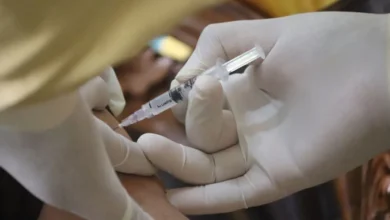U.S Surgeon General Warns of Social Media’s Impact on Mental Health

As social media platforms continue to proliferate, an increasing number of individuals are opting to abandon these platforms altogether. Recent developments, such as Twitter’s implementation of temporary reading limits, have prompted some users to explore alternative platforms or even consider leaving social media entirely. The potential mental health risks associated with social media have also been highlighted by experts, leading many to question the value of continued engagement. This article explores the benefits of disconnecting from social media and the positive impact it can have on mental health and overall well-being.
Twitter Limits and Mental Health Concerns:
Elon Musk’s recent announcement about temporary reading limits on Twitter due to data scraping and manipulation caused a stir among users. While some expressed outrage and sought alternative platforms, others humorously welcomed the limit as an opportunity to improve their mental health and refocus on personal goals. However, the incident served as a catalyst for deeper discussions about the potential harms of social media.
U.S. Surgeon General’s Advisory:
US Surgeon General Vivek Murthy recently issued an advisory stating that social media poses a “meaningful risk of harm to children.” Murthy highlighted that adolescents spending three or more hours daily on social media face twice the risk of mental health issues like depression and anxiety. The adverse effects of social media are not limited to children, as research indicates that negative feelings and poor mental health related to social media use can affect individuals of all age groups.
Mental Health Implications:
A study by McKinsey Health Institute revealed that Gen Zers are more likely than any other generation to report negative feelings about social media and poor mental health. However, the survey also found that baby boomers in certain countries spend as much time on social media as Gen Zers. The link between social media and mental health issues is evident, with research indicating disrupted sleep patterns, increased stress levels, and self-reported symptoms of depression as potential consequences of excessive use.
The Benefits of Disconnecting:
Even temporary breaks from social media can yield significant benefits for mental health. Naiylah Warren, a licensed family and marriage therapist, notes that social media breaks can reduce anxiety triggered by the fear of missing out (FOMO), alleviate symptoms of depression, and increase overall well-being. By disconnecting from social media, individuals can cultivate a stronger sense of presence, regain a sense of time, and foster deeper connections with themselves and others.
Embracing Digital Detox:
Michelle Goodloe, a licensed clinical social worker, emphasizes the importance of self-care and recommends taking intentional breaks from social media. She suggests replacing screen time with activities that bring joy, ease, or rest, such as reading, puzzles, or journaling. Goodloe asserts that these breaks allow individuals to strengthen self-awareness and avoid the negative effects of comparison, self-criticism, and shame that may arise from social media exposure.
Conclusion:
As concerns about the impact of social media on mental health continue to grow, more individuals are considering the value of disconnecting from these platforms. Temporary or permanent breaks from social media can provide numerous benefits, including reduced anxiety, alleviation of depressive symptoms, and improved overall well-being. By replacing screen time with activities that bring joy and rest, individuals can cultivate a stronger sense of self-awareness and foster deeper connections in their day-to-day lives. Ultimately, exploring alternatives to constant social media engagement may lead to a healthier and more balanced digital experience.





